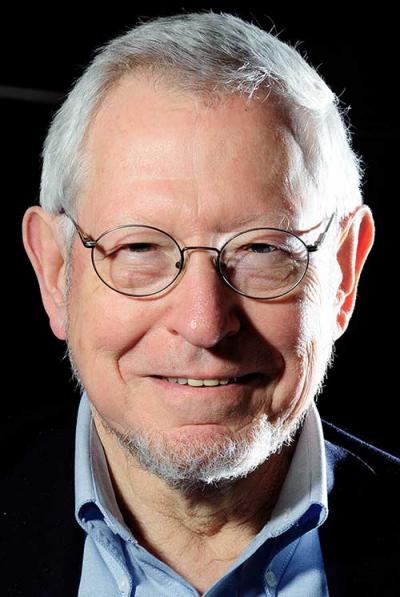

 The Secondary Market in domain names plays a critical role in Internet commerce yet is often misunderstood. This article will attempt to clear up some of the myths that frequently arise when discussing the Secondary Market... Domain name investors are but one group participating in the thriving domain name Secondary Market, in which already registered domain names move from one owner to another. more
The Secondary Market in domain names plays a critical role in Internet commerce yet is often misunderstood. This article will attempt to clear up some of the myths that frequently arise when discussing the Secondary Market... Domain name investors are but one group participating in the thriving domain name Secondary Market, in which already registered domain names move from one owner to another. more
 Over the last few years, it's become clear that abuse of the Domain Name System -- whether in the form of malware, botnets, phishing, pharming, or spam -- threatens to undermine trust in the Internet. At Public Interest Registry, we believe that every new .ORG makes the world a better place. That means anything that gets in the way of that is a threat, and that includes DNS Abuse. more
Over the last few years, it's become clear that abuse of the Domain Name System -- whether in the form of malware, botnets, phishing, pharming, or spam -- threatens to undermine trust in the Internet. At Public Interest Registry, we believe that every new .ORG makes the world a better place. That means anything that gets in the way of that is a threat, and that includes DNS Abuse. more
 Beta testers in the US and Canada paid $500 for a terminal and are paying $99 per month for the service. The beta tests began in high-income countries, but SpaceX is beginning to roll Starlink out and will include low-income nations, for example, India. Last September, SpaceX responded to a request for consultation on a roadmap to promote broadband connectivity and enhanced broadband speed from TRAI, the Telecommunications Regulatory Authority of India. more
Beta testers in the US and Canada paid $500 for a terminal and are paying $99 per month for the service. The beta tests began in high-income countries, but SpaceX is beginning to roll Starlink out and will include low-income nations, for example, India. Last September, SpaceX responded to a request for consultation on a roadmap to promote broadband connectivity and enhanced broadband speed from TRAI, the Telecommunications Regulatory Authority of India. more
 One of the consequences of the Jan 6th events is a renewed attention towards Surveillance Capitalism as a key doctrine undermining democracy.2 This part 2 of the 2 part series of discusses the rise and fall of Surveillance Capitalism under the premise that the better we understand the danger at the door, the better we are able to confront it. more
One of the consequences of the Jan 6th events is a renewed attention towards Surveillance Capitalism as a key doctrine undermining democracy.2 This part 2 of the 2 part series of discusses the rise and fall of Surveillance Capitalism under the premise that the better we understand the danger at the door, the better we are able to confront it. more
 The signs are that the Australian Government and Google are close to a compromise. The Government's main demands stay in place, but some of the details will be changed. This allows the Government to claim victory, while the damage to Google will be limited... Publishers will, in one way, or another be paid for news, either through a payment based on the value of the news and the value of the Google search facility. more
The signs are that the Australian Government and Google are close to a compromise. The Government's main demands stay in place, but some of the details will be changed. This allows the Government to claim victory, while the damage to Google will be limited... Publishers will, in one way, or another be paid for news, either through a payment based on the value of the news and the value of the Google search facility. more
 For the longest time, it was an insurmountable challenge for those in the developing world to be able to afford to legally consume multimedia products. Prices originally set in Dollars, Euros or Yen often received insufficient adjustments to compensate for lower incomes, something that was compounded by local import or manufacture taxes that did little to alleviate matters. more
For the longest time, it was an insurmountable challenge for those in the developing world to be able to afford to legally consume multimedia products. Prices originally set in Dollars, Euros or Yen often received insufficient adjustments to compensate for lower incomes, something that was compounded by local import or manufacture taxes that did little to alleviate matters. more
 Nestled in the northeastern part of the United States is the small state of Vermont, the 14th State to join the United States in 1789. Its name comes from the French, in which 'vert montagne' means 'green mountain.' and it is known as the Green Mountain state. With only about 625,000 inhabitants, it is the 45th state out of 50 in size, and 49th of 50 in number of people, even less populated than Alaska. more
Nestled in the northeastern part of the United States is the small state of Vermont, the 14th State to join the United States in 1789. Its name comes from the French, in which 'vert montagne' means 'green mountain.' and it is known as the Green Mountain state. With only about 625,000 inhabitants, it is the 45th state out of 50 in size, and 49th of 50 in number of people, even less populated than Alaska. more
 As much as I've written about broadband and broadband technology, it struck me that I have never written a concise response to the question, "Why Fiber?". Somebody asked me the question recently, and I immediately knew I had never answered the question. If you're going to build broadband and have a choice of technologies, why is fiber the best choice? more
As much as I've written about broadband and broadband technology, it struck me that I have never written a concise response to the question, "Why Fiber?". Somebody asked me the question recently, and I immediately knew I had never answered the question. If you're going to build broadband and have a choice of technologies, why is fiber the best choice? more
 Cybercriminals are increasingly targeting Personally Identifiable Information (PII). The reason being "data is the new gold" in this digital world, and the more sensitive some data is, the more value it has. There is no more sensitive data than personally identifiable information because it contains enough information to identify you digitally. Examples of personally identifiable information include name, email, contact number, address, social security number, tax file number, banking or financial information, and more such data that helps identify you. more
Cybercriminals are increasingly targeting Personally Identifiable Information (PII). The reason being "data is the new gold" in this digital world, and the more sensitive some data is, the more value it has. There is no more sensitive data than personally identifiable information because it contains enough information to identify you digitally. Examples of personally identifiable information include name, email, contact number, address, social security number, tax file number, banking or financial information, and more such data that helps identify you. more
 The cellular companies have made an unprecedented push to get customers interested in 5G. Back in November, I recorded a college football game that enabled me to go back and count the twelve 5G commercials during the game. Advertising during sports events is relatively expensive, so these ads were not purchased at bargain-basement prices. The amount of money being spent on advertising 5G must be gigantic. more
The cellular companies have made an unprecedented push to get customers interested in 5G. Back in November, I recorded a college football game that enabled me to go back and count the twelve 5G commercials during the game. Advertising during sports events is relatively expensive, so these ads were not purchased at bargain-basement prices. The amount of money being spent on advertising 5G must be gigantic. more
 As executive director of CALinnovates, an organization that advocates for innovation and startups, as well as a new business owner myself, I know how important a .COM domain name can be to a new company's online presence and marketing strategy. That's why I read with interest a new Boston Consulting Group report on how the .COM market is changing. I have a much better understanding of why new businesses find it hard to get relevant .COM domain names. more
As executive director of CALinnovates, an organization that advocates for innovation and startups, as well as a new business owner myself, I know how important a .COM domain name can be to a new company's online presence and marketing strategy. That's why I read with interest a new Boston Consulting Group report on how the .COM market is changing. I have a much better understanding of why new businesses find it hard to get relevant .COM domain names. more
 As the world becomes more and more reliant on electronics, it's worth a periodic reminder that a large solar flare could knock out much of the electronics on earth. Such an event would be devastating to the Internet, satellite broadband, and the many electronics we use in daily life. A solar flare is the result of periodic ejections of matter from the sun into space. Scientists still aren't entirely sure what causes solar flares, but they know that it's somehow related to shifts in the sun's magnetic field. more
As the world becomes more and more reliant on electronics, it's worth a periodic reminder that a large solar flare could knock out much of the electronics on earth. Such an event would be devastating to the Internet, satellite broadband, and the many electronics we use in daily life. A solar flare is the result of periodic ejections of matter from the sun into space. Scientists still aren't entirely sure what causes solar flares, but they know that it's somehow related to shifts in the sun's magnetic field. more
 If you have last-generation satellite internet access, broadband from a wireless ISP (WISP), or even satellite television from DISH or DIRECTV, an installer came and carefully aimed a dish antenna for you. Starlink, a broadband access service from Elon Musk's SpaceX company, reimagines the install process and, in most cases, eliminates the need for an installer. The Starlink dish can sit on the ground or the peak of your roof; more importantly, it aims itself, as you see in the accompanying video. more
If you have last-generation satellite internet access, broadband from a wireless ISP (WISP), or even satellite television from DISH or DIRECTV, an installer came and carefully aimed a dish antenna for you. Starlink, a broadband access service from Elon Musk's SpaceX company, reimagines the install process and, in most cases, eliminates the need for an installer. The Starlink dish can sit on the ground or the peak of your roof; more importantly, it aims itself, as you see in the accompanying video. more
 Following the American insurrection and the role the media played -- social media, particularly the "doomsday scenario," started to appear again in relation to technological developments. Only a few years ago, a group of hi-tech companies, including Tesla, warned against the negative aspects of artificial intelligence (AI). Other technologies that could seriously affect human developments include gene editing, nanotechnology and synthetic biology. more
Following the American insurrection and the role the media played -- social media, particularly the "doomsday scenario," started to appear again in relation to technological developments. Only a few years ago, a group of hi-tech companies, including Tesla, warned against the negative aspects of artificial intelligence (AI). Other technologies that could seriously affect human developments include gene editing, nanotechnology and synthetic biology. more
 Last year, around the same time, the release on the same day of two flagship reports on 'the Internet' had prompted me to write an article on CircleID entitled 'Connecting the Next 46 Percent: Time to Pick the Good From the Bad and the Ugly'. I was then prudently asking whether 'the more we connect the world, the less free it becomes?'. Who would have known that a pandemic would erupt a few months later, unveiling different perspectives in assessing that very same question? more
Last year, around the same time, the release on the same day of two flagship reports on 'the Internet' had prompted me to write an article on CircleID entitled 'Connecting the Next 46 Percent: Time to Pick the Good From the Bad and the Ugly'. I was then prudently asking whether 'the more we connect the world, the less free it becomes?'. Who would have known that a pandemic would erupt a few months later, unveiling different perspectives in assessing that very same question? more
Sponsored byCSC

Sponsored byWhoisXML API

Sponsored byIPv4.Global

Sponsored byDNIB.com

Sponsored byVerisign

Sponsored byVerisign

Sponsored byRadix
